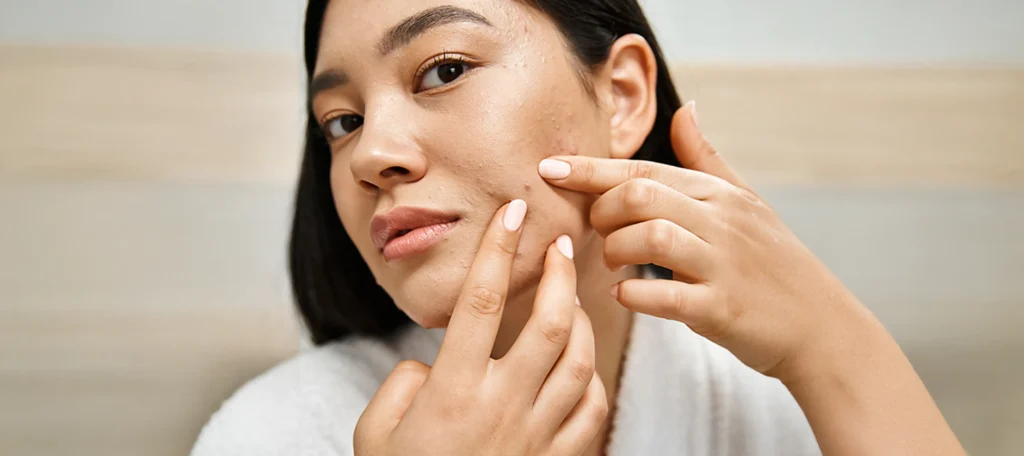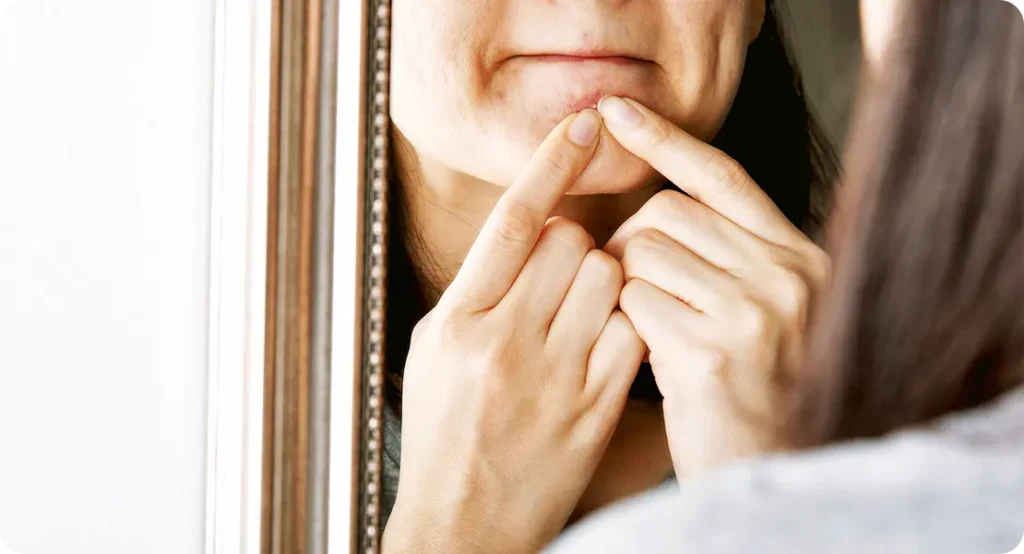Acne is one of those stubborn skin conditions that can leave you feeling frustrated, self-conscious, and at times, even hopeless. You may have already tried dozens of creams, face washes, home remedies, or over-the-counter treatments, only to see minimal results. You might feel like you’re stuck in an endless cycle of breakouts, irritation, and disappointment, and it’s natural to wonder if there’s any point in trying something else.
At this stage, you may start asking yourself: is it really worth going to a dermatologist for acne? Will it make a difference for your skin, or are you just adding another appointment to your busy schedule?
I want to help you answer that question in a practical, realistic way. By the end of this article, you’ll understand when it makes sense for you to book a dermatologist appointment, what kind of treatments a dermatologist can offer that you might not have tried at home, and what results you can realistically expect if you decide to take that step. You’ll also gain insight into how seeing a professional can save you time, reduce frustration, and give you a clear plan for managing your acne.
Why Acne Feels So Overwhelming

You’ve probably noticed that acne doesn’t just affect your skin it affects so much more in your daily life. When you see new spots appearing, it’s normal for you to feel your confidence take a hit. You might find yourself avoiding social situations, cancelling plans, or feeling hesitant to meet new people because you’re worried about how your skin looks. Even in moments when you want to relax and enjoy yourself, you may catch yourself thinking about whether your acne is noticeable or if people are judging you.
Acne can also affect your mood in ways you might not even realise. You may feel irritable, frustrated, or down when you look in the mirror and see more breakouts than the day before. You might notice that small things like a comment about your skin or seeing someone else’s clear complexion hit you harder than usual. This constant emotional stress can make acne feel like it’s taking over more than just your appearance.
What makes acne especially overwhelming for you is how unpredictable it can be. One day, your skin might look almost clear, and you feel confident stepping out into the world. The next day, it feels like every pore is rebelling at once, and no amount of washing or products seems to help. You might start questioning everything your diet, your stress levels, your sleeping habits, the skincare products you’re using and feel like you’re constantly searching for answers that never seem to come.
Understanding Acne Beyond the Surface
Acne isn’t simply about having oily skin or a few clogged pores here and there. For you, it’s a complex condition that involves multiple factors working together in ways that can feel confusing and overwhelming. Hormones, genetics, bacteria, inflammation, and even environmental triggers all play a part in how your skin behaves, which is why you might see breakouts at times that don’t seem to make sense.
You may have heard common myths about acne, like “it’s caused by eating too much chocolate” or “you just need to wash your face more often.” If you’ve tried following those rules, you’ve probably realized they don’t offer a reliable solution. These oversimplifications don’t take into account how nuanced acne really is. Dermatologists spend years studying the condition because understanding it requires more than just a quick fix. If acne were that easy to manage, you and millions of others wouldn’t still be struggling with it despite all your efforts.
The severity of acne also makes a big difference for you. Occasional blackheads or a pimple here and there might feel frustrating, but you can usually manage them with gentle care and over-the-counter products. However, if you’re dealing with persistent, inflamed, or cystic acne, you’re facing a problem that goes far deeper than what creams, scrubs, or masks can usually handle. In these cases, the breakouts are not just surface-level they indicate an underlying issue that requires targeted attention.
Over-the-Counter vs Dermatologist Treatments

When you’re standing in a pharmacy aisle, looking at row after row of acne products, it’s easy to feel overwhelmed. You might see face washes packed with salicylic acid, spot treatments filled with benzoyl peroxide, countless serums claiming to banish breakouts overnight, and a whole section of creams promising miracle results. It can feel like you’re constantly spinning in circles, trying one product after another, hoping something finally works for you.
If your acne is mild, these over-the-counter options can sometimes help. They’re designed to unclog your pores, reduce the bacteria that contribute to breakouts, and dry out excess oil. You might notice small improvements after consistent use, and for some people, that can be enough to regain confidence in their skin. However, there’s a limit to what these products can do for you. Because they’re sold without a prescription, they’re formulated at lower concentrations, meaning their strength is limited. If your acne is more stubborn, persistent, or inflamed, these products often won’t give you the results you’re hoping for, no matter how diligently you use them.
That’s where a dermatologist can make a real difference for you. Dermatologists have access to prescription-strength treatments that are far more powerful and effective than anything you can pick up off the shelf. They can prescribe topical retinoids that target the root cause of your breakouts, stronger antibiotics to reduce bacterial inflammation, hormonal treatments to address underlying imbalances, or even advanced therapies like isotretinoin (commonly known as Roaccutane) for severe acne. These are treatments that simply aren’t available to you without professional guidance, and they can completely change the trajectory of your skin’s health.
Signs It’s Time to See a Dermatologist
You might be wondering how to tell when it’s time to stop experimenting with over-the-counter products and finally see a specialist. It can be tricky because sometimes your skin shows small improvements, making you think you’re on the right track, even if the overall results are minimal. Paying attention to certain signs can help you know when it’s truly time to get professional guidance.
Your acne isn’t improving after months of trying – If you’ve been diligent about using cleansers, creams, or spot treatments consistently for several months and your skin still looks the same or worse, seems to be getting more inflamed this is a strong signal that you need professional help. You shouldn’t have to spend endless weeks guessing what might work. A dermatologist can evaluate your skin, identify the underlying causes, and create a plan that’s specifically designed for you, rather than leaving you stuck in a cycle of trial and error.
You’re noticing scars or dark marks – If your acne is leaving behind scars, red marks, or dark spots, it’s not something you should ignore. Acne scars can become permanent if they aren’t treated early, and the longer you wait, the more difficult they are to manage. By seeing a dermatologist sooner rather than later, you give yourself the best chance of preventing long-term damage and keeping your skin as smooth and healthy as possible. You deserve to feel confident in your skin, and early intervention can make a big difference.
Your acne is painful or cystic – Deep, inflamed, or cystic acne isn’t just a cosmetic problem it’s a medical issue that requires the right treatment. You may notice painful bumps that can take weeks to heal or leave permanent marks. These types of breakouts usually respond poorly to over-the-counter solutions, but a dermatologist can prescribe treatments that target the inflammation and prevent further damage. When you treat acne at this stage with professional guidance, you reduce discomfort and improve long-term results for your skin.
Your skin is affecting your confidence and daily life – If acne is holding you back from social interactions, making you anxious about photos, or even impacting your mental health, it’s a clear sign that it’s time to seek help. You shouldn’t have to feel embarrassed, self-conscious, or stressed because of your skin. A dermatologist doesn’t just treat the physical symptoms they help you regain control and confidence, so you can feel comfortable in your own skin again.
What Happens in a Dermatology Visit
If you’ve never seen a dermatologist before, it’s natural to wonder what actually happens during the visit. You might feel a bit anxious about the process, unsure what to expect, or concerned that it will be complicated. The good news is that for you, it’s usually straightforward, and the experience is designed to make your skin journey as clear and stress-free as possible.
When you arrive, your dermatologist will start by asking about your medical history, lifestyle, and skincare routine. This is important because they want to understand your skin from every angle, including any factors that might be contributing to your acne. You’ll have the chance to explain what you’ve tried before, what’s worked or hasn’t, and any concerns you have about your skin.
Next, your dermatologist will examine your skin closely. They’ll look at the type of acne you have whether it’s blackheads, whiteheads, inflamed pimples, cysts, or a combination and assess the severity. You might be surprised by how much insight a professional can gain just by observing your skin carefully. For you, this means a more accurate diagnosis and a targeted approach rather than guessing or using generic treatments.
What Results You Can Expect
One of the most important things you should understand before seeing a dermatologist is that acne treatment isn’t an overnight fix. You might be hoping for instant results, especially if you’ve struggled with breakouts for months or even years, but it’s important to set realistic expectations for yourself. Knowing what to expect can help you stay patient and committed to the process, which is key to long-term success.
Most prescription treatments take at least 8 to 12 weeks before you notice significant improvement. During this time, you may feel like nothing is changing, or you might even experience a temporary flare-up where your acne seems worse than before. This can feel discouraging for you, especially if you’re eager to see clearer skin, but it’s actually a normal part of the process. These early reactions happen because your skin is adjusting to the treatment and starting to work on the root causes of your breakouts.
With consistency and patience, however, dermatologist-led treatments usually deliver results that are far more lasting than quick-fix solutions. You’re not just addressing the visible pimples; you’re targeting the underlying factors that cause acne in the first place, whether that’s excess oil, inflammation, bacteria, or hormonal imbalances. By treating the root of the problem, you give yourself the best chance of preventing future breakouts, reducing scarring, and maintaining healthier skin over time.
Managing Realistic Expectations
It’s completely natural for you to hope for perfectly flawless skin, especially after struggling with acne for so long. You may dream of waking up every morning with clear, smooth skin and never having to worry about breakouts again. However, it’s important to recognise that completely perfect skin isn’t always realistic. What you can expect from a dermatologist is meaningful, noticeable improvement. You’ll likely see fewer breakouts, less redness and inflammation, and an overall healthier, more balanced complexion.
A dermatologist can also help you understand what results are reasonable for your specific skin type and acne severity. This helps you avoid feeling disappointed if progress is gradual, and it ensures that you stay motivated to stick with your treatment plan. You’ll learn that managing acne is about steady improvement, not instant perfection, and this mindset can make a big difference in how you approach your skincare journey.
The Cost and Value of Professional Care
One of the reasons you might hesitate to see a dermatologist is the cost. You may be thinking, “Why should I pay for a consultation when I can just buy products at the store?” It’s a valid concern, especially if you’ve already invested a lot in skincare over the years. But when you take a closer look at how much you’ve probably already spent on creams, serums, face masks, and spot treatments that haven’t delivered results, professional care can actually be more cost-effective for you in the long run. You’re not just paying for a consultation you’re investing in treatments that are tailored to your skin, designed to work, and guided by a professional who understands acne inside and out. Beyond the financial aspect, seeing a dermatologist protects your skin from long-term issues like scarring, pigmentation, and persistent inflammation.
What You Gain by Seeing a Dermatologist
When you see a dermatologist for acne, you’re not just getting stronger treatments. You’re also getting:
- Personalised care – Your treatment is designed specifically for your skin type and acne severity.
- Expert guidance – You’re not left guessing whether a product is right for you.
- Long-term improvement – Instead of constantly firefighting new spots, you’re working on lasting skin health.
- Confidence back – Clearer skin often leads to feeling more comfortable in your own skin and around others.
Lifestyle and Skincare Support
Dermatologists don’t just hand you a prescription and send you away. Many will also give advice on diet, skincare routines, and habits that can either improve or worsen your acne.
For example, you might learn which cleansers are best for sensitive skin, how to avoid over-exfoliating, or what ingredients to look for in moisturisers. Small changes can often support the bigger medical treatments you’re prescribed.
FAQs:
1. How do I know if my acne is severe enough to see a dermatologist?
You should consider seeing a dermatologist if your acne isn’t improving despite consistent use of over-the-counter treatments, or if you have deep, painful, or cystic pimples. Scarring, dark marks, or acne that significantly affects your confidence and daily life are also strong indicators. Dermatologists can assess your skin type and acne severity, helping you get treatments that target the root cause rather than just the symptoms.
2. What types of treatments can a dermatologist offer for acne?
Dermatologists have access to prescription-strength options that are not available over the counter. These can include topical retinoids like tretinoin or adapalene, stronger antibiotics, hormonal therapies, and oral medications such as isotretinoin. In addition, dermatologists may offer in-office procedures like chemical peels, light therapy, or laser treatments. Each plan is tailored to your skin’s needs, ensuring a more effective and personalised approach than generic products.
3. How long does it take to see results from dermatologist-prescribed acne treatments?
Most prescription treatments require patience. Generally, you can expect to see noticeable improvement in about 8 to 12 weeks. Some treatments may initially cause a temporary flare-up as your skin adjusts. Consistency is crucial, as sticking to the prescribed routine ensures longer-lasting results and helps prevent future breakouts.
4. Can a dermatologist help prevent acne scars and dark marks?
Yes. Early intervention by a dermatologist can reduce the risk of long-term scarring and hyperpigmentation. They can provide treatments to minimise inflammation and promote skin healing, such as targeted topical therapies, chemical peels, or laser treatments. Addressing acne before it worsens also reduces the chance of permanent marks forming.
5. Is seeing a dermatologist for acne expensive, and is it worth the cost?
While a dermatologist consultation may seem costly upfront, it can be more cost-effective than repeatedly buying ineffective over-the-counter products. Professional care not only addresses your acne effectively but also helps prevent scarring, pigmentation, and ongoing frustration. The personalised guidance, long-term improvement, and confidence gained from clearer skin often outweigh the initial cost of consultation and prescription treatments.
Final Thoughts: Taking Control of Your Acne
Seeing a dermatologist for acne is more than just visiting a doctor—it’s about getting personalised care that targets the root causes of your breakouts. By understanding your skin type, acne severity, and individual triggers, a dermatologist can provide treatments that over-the-counter products simply cannot match. This approach gives you the best chance of achieving lasting improvements, preventing scarring, and regaining confidence in your skin.
If you’re ready to take the next step in managing your acne, you can get in touch to book a consultation at our Acne Clinic in London, where our expert dermatologists will create a treatment plan tailored specifically to you, helping you see meaningful results and take control of your skin health.
References:
1. Kraft, J. (2011). ‘Management of acne’. PMCID: PMC3080563. https://pmc.ncbi.nlm.nih.gov/articles/PMC3080563/
2. Jaiswal, S., Jawade, S., Madke, B., & Gupta, S. (2024). ‘Recent Trends in the Management of Acne Vulgaris: A Review Focusing on Clinical Studies in the Last Decade’. PMCID: PMC11031619. https://pmc.ncbi.nlm.nih.gov/articles/PMC11031619/
3. Fox, L. (2016). ‘Treatment Modalities for Acne’. PMCID: PMC6273829. https://pmc.ncbi.nlm.nih.gov/articles/PMC6273829/
4. Leung, A.K.C. (2021). ‘Dermatology: how to manage acne vulgaris’. PMCID: PMC8510514. https://pmc.ncbi.nlm.nih.gov/articles/PMC8510514/
5. Li, Y. (2024). ‘Acne treatment: research progress and new perspectives’. PMCID: PMC11266290. https://pmc.ncbi.nlm.nih.gov/articles/PMC11266290/
